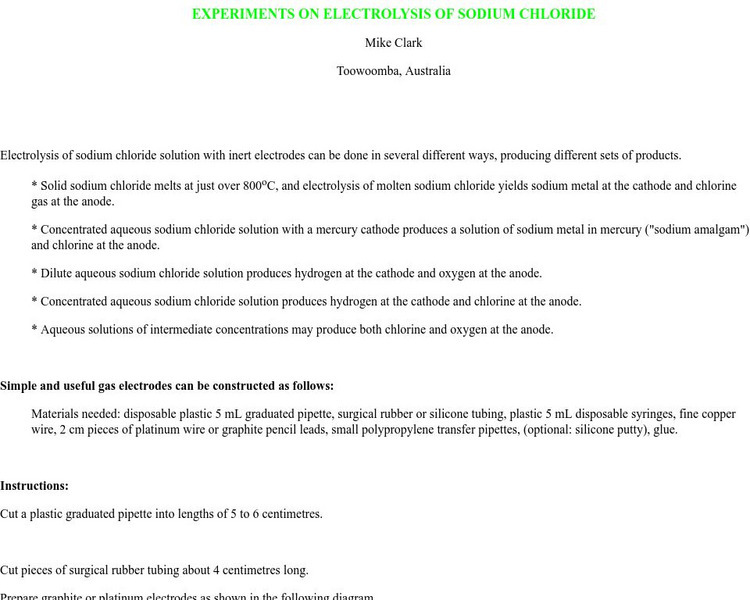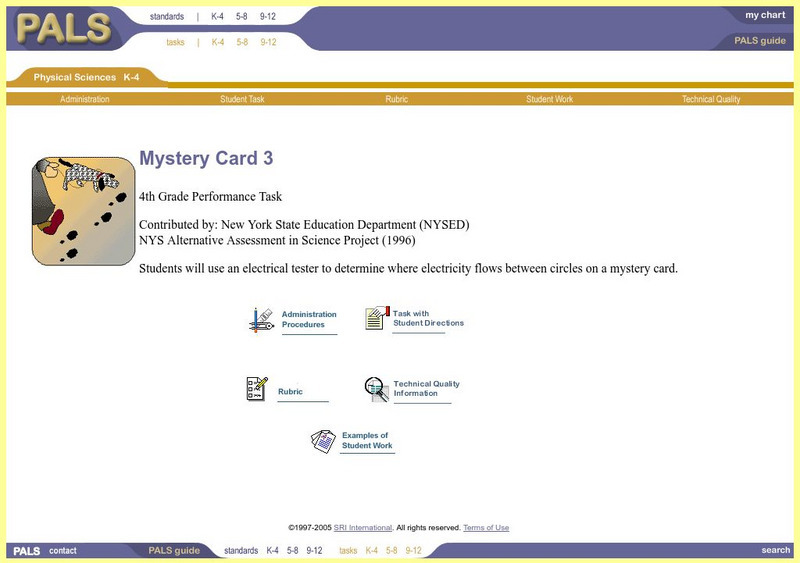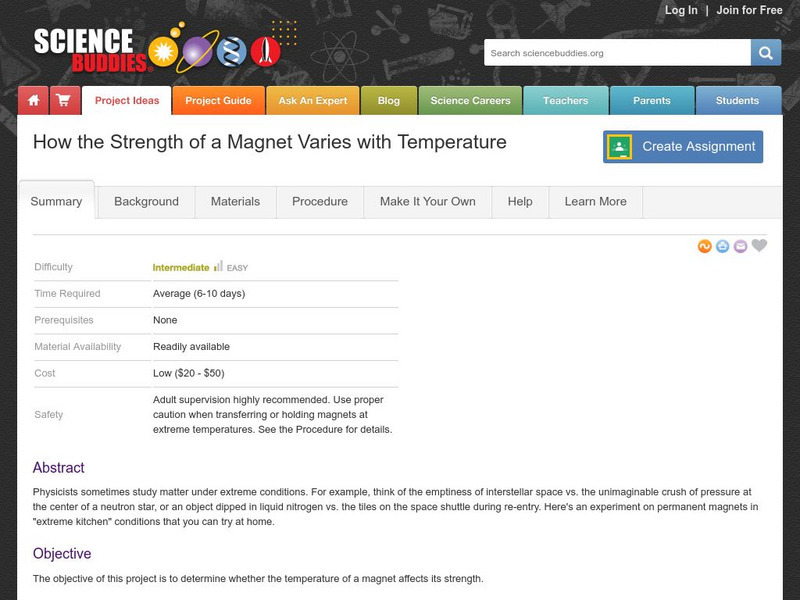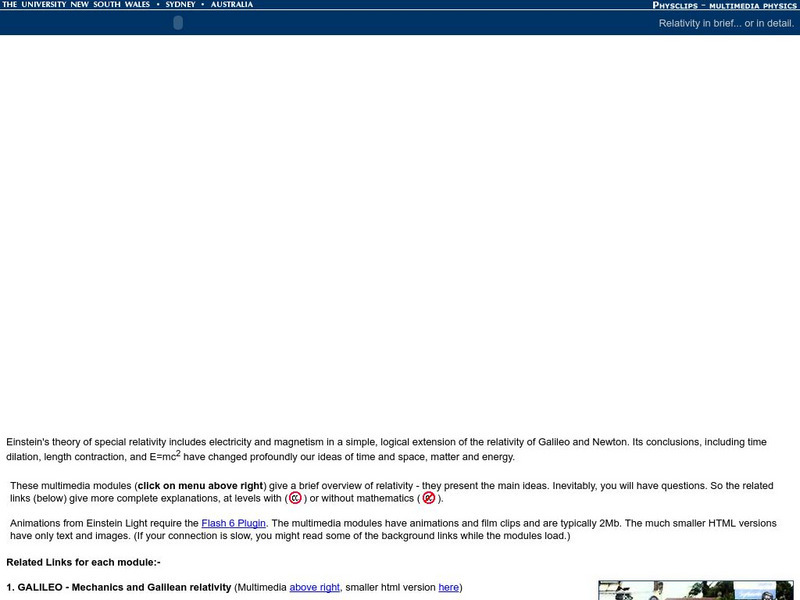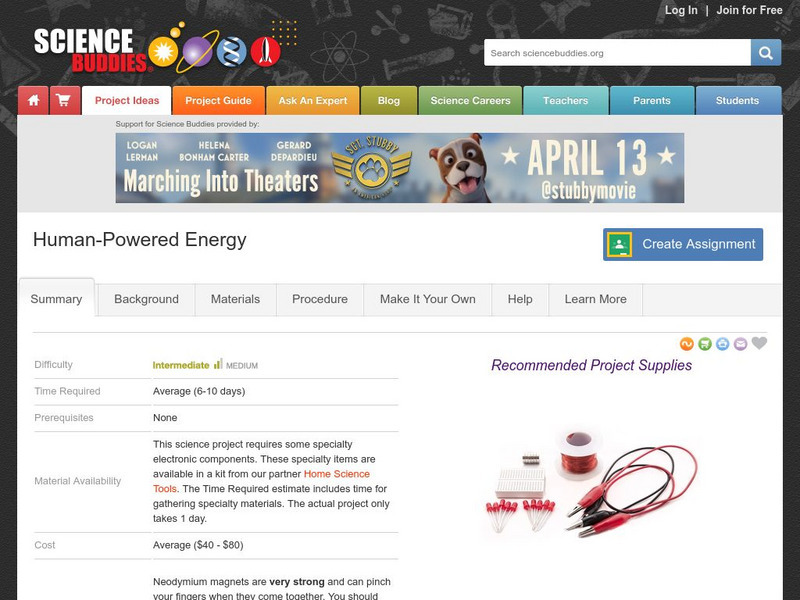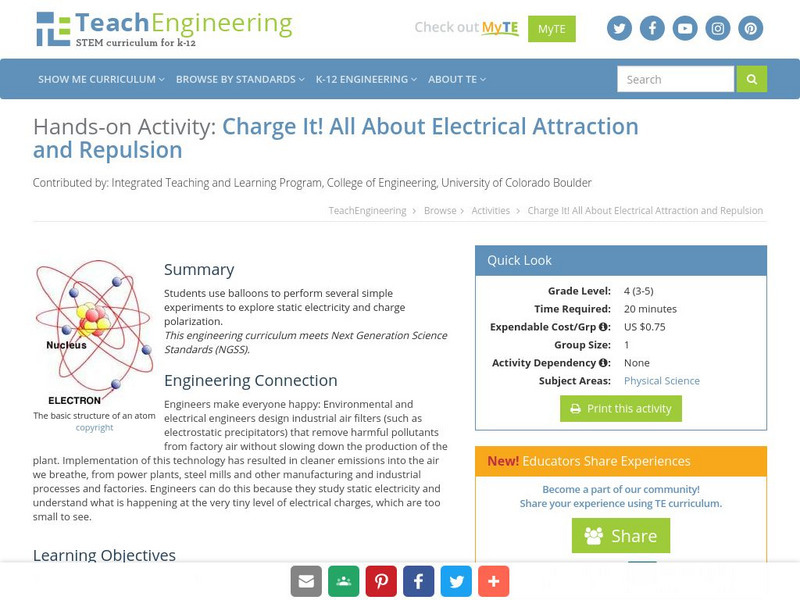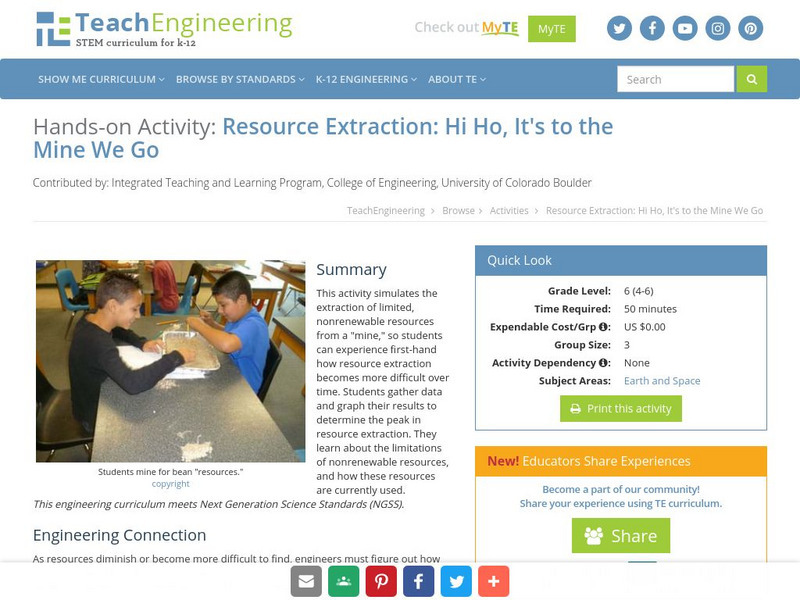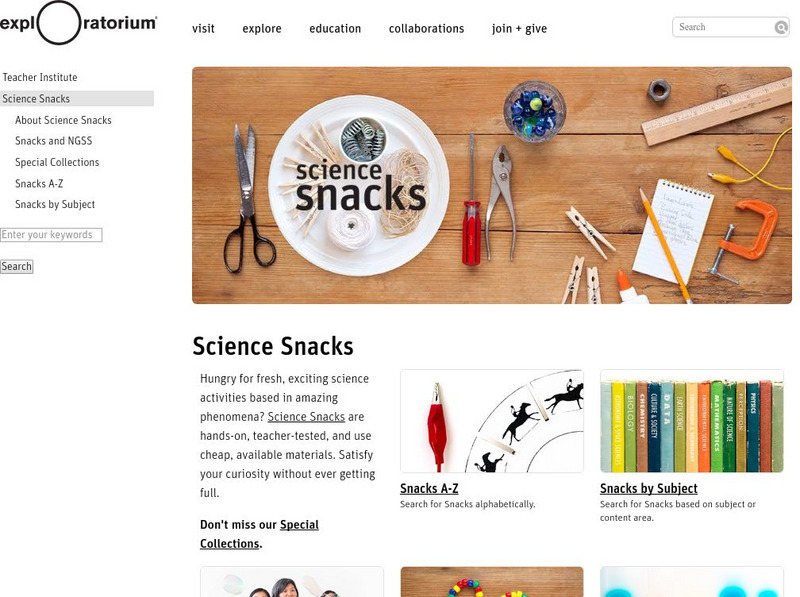Science Buddies
Science Buddies: Build a Reed Switch Motor
After building a simple electric motor from a kit, with this experiment you can explore how voltage affects motor speed. The Science Buddies project ideas are set up consistently beginning with an abstract, objective, and introduction,...
Other
Lcs: Experiments on the Electrolysis of Sodium Chloride
Complete directions several methods of conducting the electrolysis of sodium chloride solution. Helpful tips, discussion and a diagram of the apparatus and set-up is provided. Easily adaptable as a student lab or project.
Thinkport Education
Thinkport: Analyzing Data Sources and Author's Purpose: Electric Currents
In this science-themed literacy lesson, students learn how to determine the author's purpose and follow the development of that purpose.
PBS
Pbs: American Experience: Rescue at Sea
Companion website to the PBS documentary on the collision of two ships in 1909 and the reliance on the newly invented telegraph for rescue.
Other
Experience Hendrix: The Official Jimi Hendrix Website
This is the official Jimi Hendrix website. Here you will find much information on this rock legend including audio, articles and pictures.
Smithsonian Institution
Lemelson Center: Spark!lab: Make a Light Bulb
This lab shows students how to make a light bulb using 6V battery, wire, cork, and a nail. Print a form where you can record your results.
SRI International
Performance Assessment Links in Science: Mystery Card 3
Straightforward introduction to electrical circuits using minimal materials and time. Students learn about the basics of electrical circuits by experimenting with "mystery cards" -- index cards with hidden aluminum foil used to conduct...
Museum of Science
Museum of Science and Industry: Online Science: Make a Circuit Board
Step-by-step illustrated instructions showing how to build a circuit board using everyday materials.
Science Buddies
Science Buddies: A Battery That Makes Cents
Batteries are expensive to purchase in a store, but you can make one your self for exactly 24 cents. In this experiment, you will make your own voltaic pile using pennies and nickels and determine how many coins in a pile will make the...
Other
University of Liverpool: Matter Initiative for Schools a Level Resources
This site features numerous interactive resources (such as simulations, interactive exercises, experiments, etc.) designed for teachers and students of the physical sciences. Some of the resources are available only on CD-ROM, but most...
Science Buddies
Science Buddies: How the Strength of a Magnet Varies With Temperature
Physicists sometimes study matter under extreme conditions. For example, think of the emptiness of interstellar space vs. the unimaginable crush of pressure at the center of a neutron star, or an object dipped in liquid nitrogen vs. the...
University of New South Wales (Australia)
University of New South Wales: Einstein Light
Einstein Light highlights the Theory of Special Relativity and related topics. Learn how Galileo, Maxwell, and Einstein contributed to our knowledge of relativity, electricity, magnetism, and time by watching fun, interactive modules.
Science Buddies
Science Buddies: Shaking Up Some Energy
Shake N' Light flashlights have been advertised on televisions across the nation in the recent year. But many do not understand just how they get energy to light up the bulb without using batteries. Do this experiment to make your own...
National High Magnetic Field Laboratory
Magnet Academy: Luigi Galvani
Luigi Galvani was a pioneer in the field of electrophysiology, the branch of science concerned with electrical phenomena in the body. His experiments with dissected frogs and electrical charges led him to suggest the existence of a...
National High Magnetic Field Laboratory
Magnet Academy: Hans Christian Orsted
A discovery by Hans Christian Orsted forever changed the way scientists think about electricity and magnetism. While preparing to perform an experiment during a lecture at the University of Copenhagen, he found that the magnetized needle...
National High Magnetic Field Laboratory
Magnet Academy: Leyden Jars 1745
Because they could store significant amounts of charge, Leyden jars allowed scientists to experiment with electricity in a way never before possible.
National High Magnetic Field Laboratory
Magnet Academy: Joseph John Thomson
Joseph John Thomson, better known as J. J. Thomson, was a British physicist who first theorized and offered experimental evidence that the atom was a divisible entity rather than the basic unit of matter, as was widely believed at the...
TeachEngineering
Teach Engineering: Charge It!
Students use a balloon to perform several simple experiments to explore static electricity and charge polarization.
TeachEngineering
Teach Engineering: Whose Field Line Is It, Anyway?
Students teams each use a bar magnet, sheet of paper and iron shavings to reveal the field lines as they travel around a magnet. They repeat the activity with an electromagnet made by wrapping thin wire around a nail and connecting...
University of Kentucky
Elecroscope Lab
This site is actually a lab from the University of Kentucky Electrical Engineering Department. It is an excellent experiment that can be done at the high school level.
Concord Consortium
Concord Consortium: Stem Resources: Wind Generator
Using a voltage sensor, students will measure how much "electricity" is produced by the wind turbine that they design and build. Students will experiment with blade designs to see which one collects energy from the wind the most...
TeachEngineering
Teach Engineering: Hi Ho, Hi Ho, It's to the Mine We Go
This activity simulates the extraction of limited, nonrenewable resources from a "mine," so students can experience first-hand how resource extraction becomes more difficult over time. Students gather data and graph their results to...
Science Bob Pflugfelder
Science Bob: Build an Electromagnet!
This site presents a procedure for creating your own electromagnet using an iron nail, some wire, and a battery. The site illustrates a connection between electricity and magnetism.
Exploratorium
Exploratorium: Snacks
Exploratorium's snacks aren't edible, but they are good! Use your science skills to discover gravity, learn about biology, do fun experiments.



